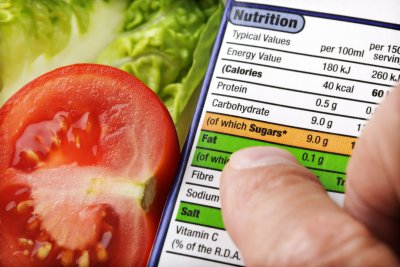The Children’s Food Campaign (CFC) is this morning handing in 54 separate complaints to the Advertising Standards Authority (ASA) concerning the online marketing of junk foods to children. Each of the offending company websites promote products which are classified as “high in sugars or fat or salt” and are clearly targeted at children. This marketing encourages poor nutritional habits by presenting junk foods in a positive light which influences children’s food preferences and choices.
The ‘super-complaint’ is issued to the ASA after correspondence from Ed Vaizey MP, the Minister for Culture, Communications and Creative Industries encouraging the Children’s Food Campaign to lodge complaints where advertising rules have been broken. The Minister also stated his confidence that the ASA would take concerns of irresponsible food advertising seriously.
The complaints are drawn from a report published by CFC and the British Heart Foundation in December – The 21st century gingerbread house: How companies are marketing junk food to children online – which exposed how junk food manufacturers bombard kids online in order to push their unhealthy products. The report highlighted the unabashed use of brand characters, animations, games, competitions, promotions, videos and social networking sites which clearly target and are appealing to children.
None of the products complained about can be promoted during children’s television programmes because of Ofcom rules to protect children from junk food advertising. Yet due to a loophole in advertising regulations, companies are allowed to market these products and brands freely via the internet. The Children’s Food Campaign is calling for consistent advertising regulations across all forms of media to protect children and their future health.
Kawther Hashem, of the Children’s Food Campaign said:
“The pervasive nature of online junk food marketing to children really leaves us with no choice but to submit this ‘super-complaint’. It is time for the ASA to face the music: will it or will it not act to protect children from cynical junk food marketing practices?”
She continued:.
This is not just our challenge, but comes from Minister Ed Vaizey, who has expressed his faith in the current self-regulatory system. When the picture is clear, we will inform the Minister how the ASA has performed, so that he will be able to judge the effectiveness of the regulation for himself.”
ENDS
For further information and interviews, please contact Malcolm Clark on 0203 5596 777 or 07733322148, or malcolm@sustainweb.org
Notes:
1. The complaints will be delivered by a delegation from the Children’s Food Campaign to the Advertising Standards Authority’s offices (Mid City Place, 71 High Holborn, London WC1V 6QT) at 11am on Thursday 9 February.
The complaints concern marketing communications which are subject to section 15 on ‘Food, food supplements and associated health or nutrition claims’ of the Advertising Standards Authority Committee of Advertising Practice (CAP) Code. The Children’s Food Campaign maintains that it breaches the following clause: “Marketing communications must not condone or encourage poor nutritional habits or an unhealthy lifestyle in children.”
2. For a full list of the 54 websites, including many well know brands, which are the subject of a complaint for promoting products high in fat, salt and/or sugar, please contact Children’s Food Campaign.
3. All the products and websites were featured in the British Heart Foundation and Children’s Food Campaign report The 21st C. Gingerbread house: How companies are marketing junk food to children online. The report was conducted between April and July 2011. It identified 100 websites including product sites, brand sites and company web pages which were examined in detail. The report can be downloaded from https://www.sustainweb.org/publications/?id=200
4. Online Advertising
The Advertising Standards Authority (ASA) is an advertising industry body set up to apply voluntary codes of practice and avoid regulation. In 2011, the ASA extended its remit to include online advertising on paid for and non-paid for space, including company websites and social networking platforms. Unlike the television regulations, the non-broadcast code does not distinguish between healthy and unhealthy food. Instead it exists to ensure that advertising is ‘legal, decent, honest and truthful’, rather than to protect and promote health. Consequently, when it does touch on health issues, the wording of the code is vague. For example, it states that ‘marketing communications should not condone or encourage poor nutritional habits or an unhealthy lifestyle in children’ but what constitutes ‘condoning and encouraging’ or ‘poor habits’ is left open to interpretation. This means that companies can market HFSS products to children online which cannot be advertised during children’s television programmes.
5. Broadcasting code
The broadcasting code regulates food and drink advertising on television by identifying HFSS products. Products which do not meet specific nutritional criteria cannot be advertised during programmes or television channels made specifically for children, or during programmes of particular appeal to children under 16. The code also provides guidance to identify unhealthy brands and works to prevent the advertising of high fat, sugar and salt (HFSS) brands to children. Product placement for HFSS foods and drinks is prohibited in all broadcast advertising.
6. Independent, systematic and peer-reviewed research commissioned by the Food Standards Agency concluded that food promotion influences children’s behaviour in a number of ways – including their preferences, purchase behaviour and consumption. Hastings et al (2003) Review of the research on the effects of food promotion to children. See: http://www.food.gov.uk/multimedia/pdfs/foodpromotiontochildren1.pdf
7. In a letter to us dated 20 December 2011, Ed Vaizey MP, Minister for Culture, Communications and Creative Industries, assures us that the ASA will take concerns of irresponsible food advertising seriously. He states that the Authority encourages complaints to be lodged where advertising rules are believed to have been broken.
8. The Children’s Food Campaign aims to improve young people’s health and well-being through better food – and food teaching – in schools and by protecting children from junk food marketing. We are supported by over 150 national organisations and co-ordinated by Sustain: the alliance for better food and farming. For more information see www.childrensfood.org.uk
Children's Food Campaign: Campaigning for policy changes so that all children can easily eat sustainable and healthy food.








